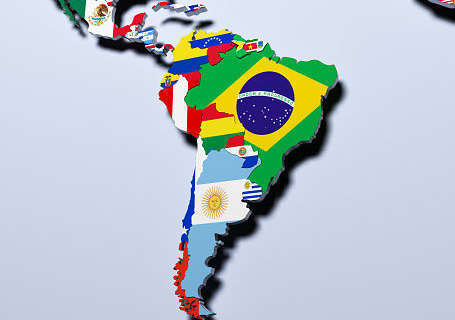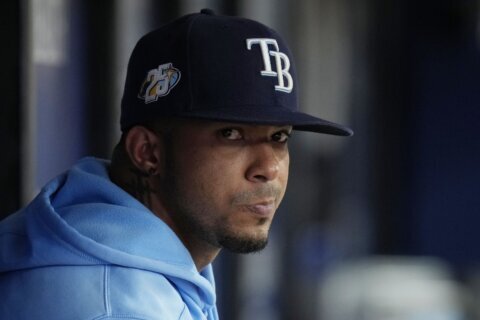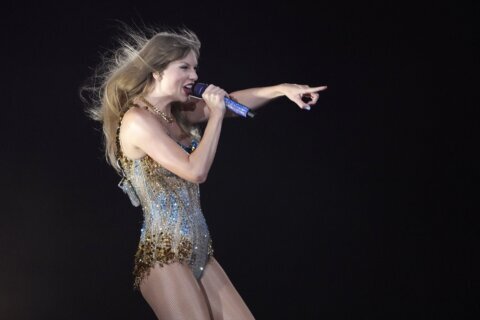LIMA, Peru (AP) — Peruvian authorities said Wednesday they will comply with a request from the Inter-American Court of Human Rights to not release former President Alberto Fujimori from prison until it can examine the case.
The move came almost two weeks after Peru’s Constitutional Court issued a controversial order that Fujimori be freed from the prison where he is serving a 25-year sentence for murder and corruption charges.
Special prosecutor Carlos Reaño confirmed to The Associated Press that officials would keep Fujimori in detention because of the regional court’s request. Supporters of Fujimori have gathered outside prison hoping to see his release, while those opposed to letting him out have protested in downtown Lima.
The Constitutional Court’s decision restored a humanitarian pardon granted to the 83-year-old Fujimori on Christmas Eve in 2017 by then President Pablo Kuczynski. The country’s Supreme Court overturned the medical pardon in 2018 and ordered the former strongman returned to prison to serve out his sentence for human rights abuses.
Spokesmen for the Inter-American Court of Human Rights did not respond to questions from AP. A spokesman for the Constitutional Court declined to comment.
Fujimori is being held in an exclusive prison where he is the only prisoner. In addition to the 25-year sentence for murder, Fujimori was convicted in three corruption cases for which he owes $13.6 million in civil damages.
The request from the regional rights court was first announced by the Center for Justice and International Law, a group that represents some of Fujimori’s victims. Its director of communications, Daniel Pinilla, said in a statement that the regional court ordered Peru not to release Fujimori in order to “guarantee the right of access to justice for the victims.”
Fujimori, who governed from 1990 to 2000, remains a polarizing figure in the Andean country. Some Peruvians laud him for defeating the Maoist Shining Path guerrilla movement, while others loathe him for human rights violations carried out under his government.
A former mathematics professor, Fujimori was a political outsider when he emerged from obscurity to win Peru’s 1990 presidential election over writer Mario Vargas Llosa.
Peru was being ravaged by runaway inflation and guerrilla violence when he took office. He quickly rebuilt the economy with mass privatizations of state industries. Defeating the fanatical Shining Path rebels took longer but his fight won him broad-based support.
But his presidency collapsed just as dramatically as his rise to power.
After briefly shutting down Congress and putting himself into a third term, Fujimori fled the country in disgrace in 2000 after leaked videotapes showed his spy chief, Vladimiro Montesinos, bribing lawmakers. Fujimori went to Japan, his parents’ homeland, and sent in his resignation by fax.
Five years later, he stunned supporters and enemies alike when he flew to neighboring Chile, where he was arrested and extradited to Peru. Fujimori’s goal was to run for Peru’s presidency again in 2006, but instead, he was put on trial.
His daughter, Keiko Fujimori, was a presidential candidate last year and vowed to release him if she got elected. But Pedro Castillo defeated her in a runoff election.
Even in freedom, Fujimori was not going to be able to leave Peru due to another recent court order because he is accused in another trial of masterminding the murder of six peasants executed by the same military squad involved in his current conviction.
The decision of the Constitutional Court has been criticized by international experts. The release would shorten Fujimori’s sentence by a decade.
United Nations human rights experts said in a statement that “unless justified by clearly acceptable reasons under domestic and international law, the annulment of the effects of the 25-year sentence against Fujimori would represent a serious blow to justice and to the rule of law, and a violation of the right to justice of the victims and their families.”
Juan Pappier, a researcher for Human Rights Watch, told AP that the magistrates who voted for Fujimori’s release were not even aware of the existence of a binding ruling by the Inter-American Court of Human Rights on the alleged humanitarian pardon of Fujimori.
“It’s a mistake not even a first-year law student should make,” Pappier said. He added that the Peruvian court’s action “does not contain sufficient arguments to justify a decision of such magnitude, it constitutes a true setback for the fight against impunity in Peru.”
Copyright © 2024 The Associated Press. All rights reserved. This material may not be published, broadcast, written or redistributed.







